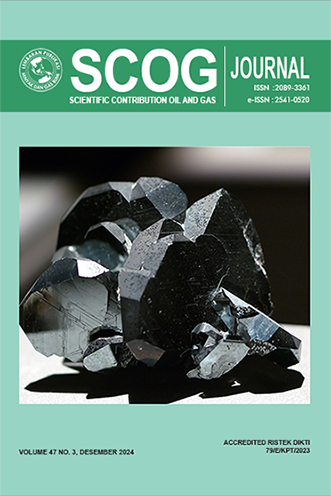Stability Analysis of Jet Fuel-Bioethanol Blends: an Experimental Approach
DOI:
https://doi.org/10.29017/SCOG.47.3.1638Keywords:
aviation fuels, bioethanol, existent gum, jet fuel, oxidation stability.Abstract
Incorporating bioethanol into jet fuel blends has garnered increasing attention as a viable strategy to reduce dependence on fossil fuels and address environmental issues. This study investigates the influence of different amounts of bioethanol on the stability properties of jet fuel blends. Bioethanol addition to jet fuel causes a steady increase in its freezing point. The alteration has been attributed to the destabilizing effect caused by polar hydrogen bonds in bioethanol on the intermolecular forces. Oxidation stability analysis demonstrates a clear correlation between ethanol content and a swift decrease in pressure resistance. Although pure jet fuel is highly stable, mixes that include bioethanol show much lower stability. This decline highlights the reduced impact of bioethanol on fuel stability and oxidation processes. The simultaneous occurrence of gum formation emphasizes the need for careful formulation strategies to prevent stability problems and system complexities. Moreover, the complex influence of bioethanol on the temperature, stability, and oxidation properties of jet fuel blends highlights the importance of using accurate formulation methodologies to improve aviation fuels.
References
Aghahossein Shirazi, S., Abdollahipoor, B., Martinson, J., Windom, B., Foust, T. D., & Reardon, K. F. (2019). Effects of dual-alcohol gasoline blends on physiochemical properties and volatility behavior. Fuel, 252(April), 542–552. https://doi.org/10.1016/j.fuel.2019.04.105
Aisyah, L., Setyo Wibowo, C., Ayu Bethari, S., & Kunci, K. (2016). COMPARISON OF BIODIESEL B-20 AND B-30 ON DIESEL ENGINE PERFORMANCES AND EMISSIONS PERBANDINGAN BIODIESEL B-20 DAN B-30 PADA KINERJA MESIN DIESEL DAN EMISINYA. SCIENTIFIC CONTRIBUTIONS OIL AND GAS, 39, 7–8. http://www.journal.lemigas.esdm.go.id
Amine, M., Awad, E. N., Ibrahim, V., & Barakat, Y. (2018). Effect of ethyl acetate addition on phase stability, octane number and vola
Downloads
Published
Issue
Section
License
Copyright (c) 2024 © Copyright by Authors. Published by LEMIGAS

This work is licensed under a Creative Commons Attribution 4.0 International License.
Authors are free to Share — copy and redistribute the material in any medium or format for any purpose, even commercially Adapt — remix, transform, and build upon the material for any purpose, even commercially.
The licensor cannot revoke these freedoms as long as you follow the license terms, under the following terms Attribution — You must give appropriate credit , provide a link to the license, and indicate if changes were made . You may do so in any reasonable manner, but not in any way that suggests the licensor endorses you or your use.
No additional restrictions — You may not apply legal terms or technological measures that legally restrict others from doing anything the license permits.














